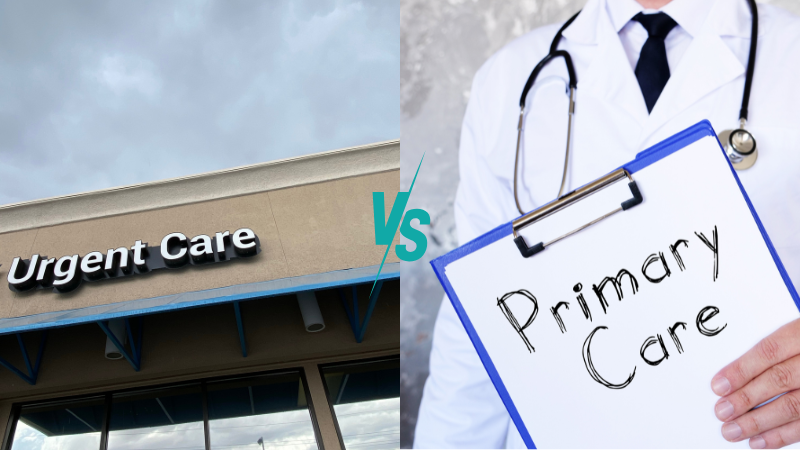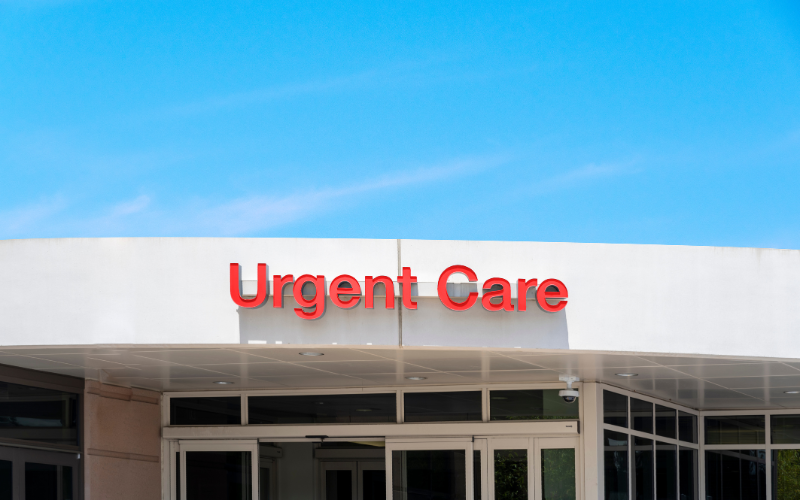
Every decision you make regarding your health is important. You hold the compass to your well-being, and navigating the healthcare landscape is worth mastering. Knowing when to seek urgent care or go straight to the emergency room is critical. It’s a decision that can make or break your life, and in this guide, we’ll dispel the myths around this process. From understanding the unique roles of urgent care and the emergency room to identifying the telltale signs that call for immediate attention, we’ve got you covered. So, let’s dive in.
Understanding Urgent Care
Medical institutions that offer prompt, non-life-threatening care are known as urgent care centers. With longer hours and lower wait times, they provide a compromise between emergency room and primary care services.
Urgent care facilities are fully prepared to manage various medical conditions, such as common diseases, infections, and minor accidents. They are suitable for non-severe issues such as minor fractures, flu, and lacerations.
These centers offer convenience, shorter waiting times, and cost-effective care. They are a suitable option for many medical concerns.
Identifying Emergency Situations
Emergency rooms are equipped to handle life-threatening and severe medical emergencies. They are staffed 24/7 and have specialized equipment and medical professionals available.
Emergencies that necessitate a trip to the emergency room include heart attacks, strokes, severe trauma, uncontrolled bleeding, severe chest pain, and respiratory distress.
Assessing Symptoms
List of Symptoms That May Indicate the Need for Urgent Care: Symptoms such as mild to moderate fever, minor burns, cuts, or urinary tract infections may be suitable for urgent care. If the condition is not life-threatening but needs prompt attention, consider urgent care.
List of Symptoms That May Require Emergency Room Attention: Symptoms like chest pain, severe head injuries, difficulty breathing, severe allergic reactions, or uncontrolled bleeding indicate the need for immediate emergency room care.
Evaluating Severity and Time Sensitivity
Factors to Consider When Determining Urgency: When assessing the situation, consider the severity of the condition, the time sensitivity of the treatment, and the potential consequences of delaying care.
Importance of Seeking Immediate Care in Life-Threatening Situations: In life-threatening situations, time is of the essence. Delaying care can have severe consequences. When in doubt, prioritize immediate attention.
Considering Practical Matters
Financial Considerations for Urgent Care and Emergency Room Visits: It’s important to be aware of the financial implications of your choice. Urgent care centers often offer more cost-effective care for non-severe conditions, while emergency room visits can be significantly more expensive.
Accessibility and Availability of Urgent Care Centers and Emergency Rooms: Consider the proximity of these facilities to your location and their availability. Urgent care centers often have extended hours, making them more accessible for non-severe issues outside regular business hours.
Making the Decision: Urgent Care or Emergency Room?
The choice between urgent care and the emergency room should be guided by a step-by-step decision-making process that considers symptoms, severity, and practical factors. Here’s how to make an informed decision:
Assess the Symptoms: Begin by evaluating the severity of your symptoms. Is it a non-severe condition that needs prompt attention, or is it a life-threatening emergency?
Time Sensitivity: Consider the urgency of the treatment. Is the condition time-sensitive, with potential consequences for delaying care?
Practical Factors: Be aware of the financial implications of your choice. Urgent care is often more cost-effective for non-severe issues, while emergency room visits can be significantly more expensive.
Accessibility and Availability: Consider the proximity and availability of urgent care centers and emergency rooms. Urgent care centers often offer extended hours, making them more accessible outside regular business hours.
Consult a Healthcare Professional: When in doubt, it’s always wise to consult a healthcare professional. They can advise you based on your scenario.
Following these steps, you can confidently determine whether urgent care or the emergency room is the most appropriate choice for your healthcare needs.
Knowing when to seek urgent care or go to the emergency room is a crucial aspect of prioritizing your health. By understanding the differences between these two options, recognizing the severity of symptoms, and considering practical matters, you can make informed decisions that are in the best interest of your well-being. Remember, your health is valuable, and seeking the appropriate care at the right time can make all the difference in your recovery and overall health.





